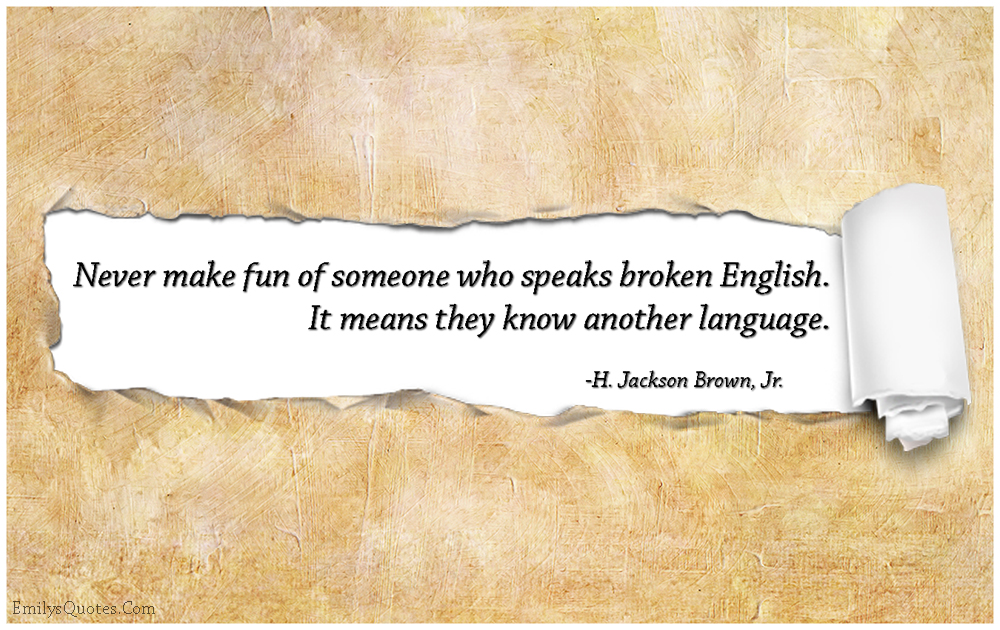

becomes at once evident if we try to represent its sounds.

in the hope that others, more qualified than myself, will take up the subject and help to secure for it a prominent place in linguistics to which it is justly entitled. In the following I shall try to establish some of the fundamental principles of B.E. is a language of inexhaustible resource-rich, flexible and with an almost unlimited freedom. is almost the only way of expressing themselves - at least in certain spheres of activity - that it is about time that Broken English be regarded as a language in its own right. Of course a corresponding point of view would be entirely justified in the hypothetical case of an Englishman trying to speak Dutch (or any other language for that matter) because he will necessarily be a lone figure, but the number of speakers of Broken English is so overwhelming and there are so many for whom B.E. and to deprive his language of much of its primeval vigor. One way of regarding Broken English is to consider it as a more or less successful attempt to speak correct English, but that is a pedantic, schoolmasterish point of view that moreover threatens to stultify the speaker of B.E. but to the much more general language that is used by waiters in Hawaii, prostitutes in Paris and ambassadors in Washington, by businessmen from Buenos Aires, by scientists at international meetings and by dirty-postcard peddlers in Greece - in short, by honorable people like myself all over the world.

I am not referring to Pidgin English highly formalized and restricted branch of B.E. There exists today a universal language that is spoken and understood almost everywhere: it is Broken English. (also see Scientific American, March 1956) Written by a Dutch physicist, Hendrik Casimir (1909-2000)


 0 kommentar(er)
0 kommentar(er)
